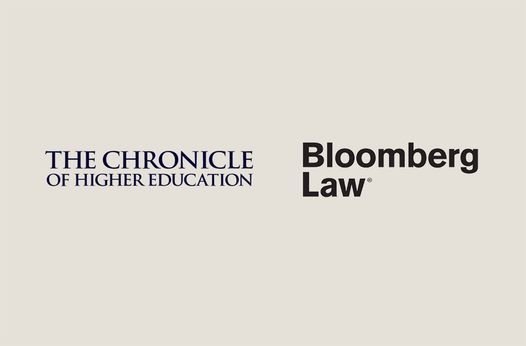Establishing Attorney's Breach of Duty Requires Expert Witness Testimony
Lawyers for the Profession® Alert | 6 min read
Aug 9, 2018
Sere v. Trapeni, Jr., et al., 2018 Va. Unpub. LEXIS 17 (Va. Supreme Court July 26, 2018)
Brief Summary
Plaintiff asserted her attorney's alleged breach of duty—e.g., improperly naming the defendant in the original complaint and dismissing the action instead of moving to correct the misnomer—resulted in her personal injury claim being time-barred. Having failed to timely designate an expert witness to testify regarding the attorney's breach in her malpractice action, plaintiff argued on appeal that expert testimony was unnecessary because several of the issues had already been decided in the underlying action, and in any event, the issues could be understood and decided by the common layperson. The Virginia Supreme Court disagreed and affirmed the trial court's dismissal, concluding that to establish breach of duty here, several complex legal questions would need to be answered, all of which were outside the experience or knowledge of the common layperson.
Complete Summary
The Underlying Action
Plaintiff was injured at a retail store and retained defendant and his law firm (defendants) to represent her in a personal injury action. Defendants commenced an action against the "Store Owner" under the name "Target Stores, Inc." alleging negligence. The Store Owner filed an answer claiming that it had been improperly named, asserting that "Target Stores" was an unincorporated division of "Target Corporation," and that "Target Corporation" was the only proper defendant. The Store Owner removed the action to federal court, continuing to assert that it was improperly named. Plaintiff terminated the federal court action by a stipulation of dismissal.
About five months later, defendants commenced a second action on plaintiff's behalf against the Store Owner under the name "Target Corporation." The Store Owner filed a motion to dismiss asserting that plaintiff's first action did not toll the statute of limitations because she failed to name the correct defendant. It further argued that plaintiff's second complaint could not relate back to the filing of the original complaint. Plaintiff responded by denying that "Target Stores, Inc." was an improper name, and sought to amend her complaint by inserting the Store Owner's true name "whatever it may be." Further, plaintiff asserted that Target Corporation and Target Stores, Inc. were the same entity and the Store Owner had actual notice of her claim. The trial court ruled that discovery was necessary to establish the Store Owner's true name, and both parties' motions were denied without prejudice.
After discovery, the Store Owner filed another motion to dismiss, setting forth in documentation and deposition testimony the Store Owner's original name, its fictitious name filings and its merger with "Target Corporation," a name that was unavailable for use in Virginia where the Store Owner transacted business under the name of "Target Stores, Inc." Suffice it to say that the series of transactions was complex enough for the Virginia Supreme Court to take no position on the proper name of the Store Owner.
Thereafter, plaintiff discharged defendants and retained new counsel, who filed an opposition to the Store Owner's motion, asserting that: (i) the Store Owner's name was unascertainable by searching the Virginia State Corporation Commission's records; (ii) any error in the Store Owner's name was merely a misnomer that was curable under the Virginia Code because the Store Owner had actual notice of her claim; and (iii) her cause of action was not time-barred as it had been tolled until the filing of the second complaint. After a hearing, the trial court granted the Store Owner's motion and dismissed plaintiff's complaint with prejudice.
The Malpractice Action
Nearly six years later, plaintiff, through new counsel, commenced an action against defendants for malpractice. She alleged defendants were negligent for failing to amend the original complaint in the underlying action to name the Store Owner as "Target Corporation," thereby allowing her claim to be become time-barred. The trial court ordered plaintiff to designate her expert witnesses ninety days before trial. Plaintiff's attorney later withdrew, and she continued the action pro se.
Defendants moved for summary judgment asserting that plaintiff failed to designate an expert to establish breach of duty. Plaintiff cross-moved for summary judgment claiming she had timely designated an expert—which defendants claimed not to have received—but also arguing that no expert testimony was necessary because the issues of the statute of limitations and the Store Owner's proper name had been adjudicated in the underlying action. The remaining issues, she contended, were matters within the common knowledge of a layman, such as whether an attorney should know how to sue the correct defendant.
The trial court ruled that the case required expert testimony. Defendants submitted an affidavit from plaintiff's alleged expert witness stating that while he had been engaged by plaintiff's former counsel earlier, he denied that plaintiff ever arranged for him to testify in the action. Consequently, the trial court granted defendants' motion for summary judgment. Plaintiff appealed.
On appeal, the court initially noted that in legal malpractice actions, to establish the attorney's breach of duty, a plaintiff must generally do so through an expert witness. A rare exception to the general rule provides that expert testimony is not necessary "when the alleged act of negligence clearly lies within the range of the jury's common knowledge and experience." The court began by finding that the trial court's decision in the underlying personal injury action had no preclusive effect in the malpractice action. Accordingly, an adjudication of plaintiff's claim, i.e., that defendants were negligent in allowing her claim to become time-barred, required a determination that the action had, in fact, become time-barred.
The court reasoned that such a determination could not be made without resolving at least four questions, all of which were complex legal questions not within the common knowledge of a layperson, "or perhaps, even the average attorney." The questions included:
- Was a voluntary dismissal under Federal Rule of Civil Procedure 41(a)(1)(A) a "voluntary nonsuit" for the purpose of tolling the statute of limitations as prescribed in the Virginia Code? The court noted it had never considered this exact question before.
- Based upon the Store Owner's filings with the Virginia State Corporation Commission, and despite the Store Owner's continued insistence to the contrary, was its proper name in Virginia "Target Stores, Inc." as defendants named it in the original complaint?
- Assuming the Store Owner was sued under an improper name, was this a misjoinder or misnomer? If a complaint clearly describes the proper party through specific factual allegations, the use of an improper name is simply a misnomer that may toll the statute of limitations when the original action is brought against the proper party, even if improperly named.
- Did the failure to correct the misnomer, if any, prevent tolling of the statute of limitations?
The court concluded that the need to resolve these complex legal questions supported the trial court's decision that the issue of whether defendants breached their duty to plaintiff was not within the common knowledge of a layperson, and expert witness testimony was required. Compare Red Zone LLC v. Cadwalader, Wickersham & Taft LLP, Index No. 650318/2011 (NY Sup.Ct. NY Cty. Aug. 2, 2018) (determining whether parties came to an agreement and whether the attorneys' failure to memorialize that agreement was prima facie proof of malpractice was within the "ken" of the typical juror, and no expert testimony was needed).
Interestingly, in a footnote, the court stated that all four questions were purely questions of law, dealing with the legal interpretation of sections of the Virginia Code. "When the question of whether an attorney breached his or her duty involves 'purely matters of law, they are reserved for determination by a court and cannot be the subject of expert testimony.'" Plaintiff, however, failed to raise this argument in the trial court or on appeal.
Significance of the Opinion
Whether an attorney breached a duty to a client often involves the resolution of layers of questions that go far beyond simply blowing a filing deadline. Although this decision is unpublished, the opinion reinforces the need for expert witness testimony to establish—or to dispute—an attorney's breach of duty in most legal malpractice actions.
Featured Insights

Employment Law Observer
Dec 8, 2025
12 Days of California Labor and Employment: 2025 Year in Review

Press Release
Dec 4, 2025
Hinshaw Recognized by the Leadership Council for Legal Diversity as a 2025 Top Performer

Press Release
Nov 25, 2025
Hinshaw Legal Team Secures Summary Judgment in Gas Station Injury Case

Press Release
Nov 18, 2025
Hinshaw Releases the Third Edition of Duty to Defend: A Fifty-State Survey

In The News
Nov 13, 2025
A Profile on Neil Rollnick: After 57 Years in Practice, He Has No Plans to Retire

Press Release
Oct 22, 2025
Hinshaw & Culbertson LLP Launches New Website and Refreshed Brand







